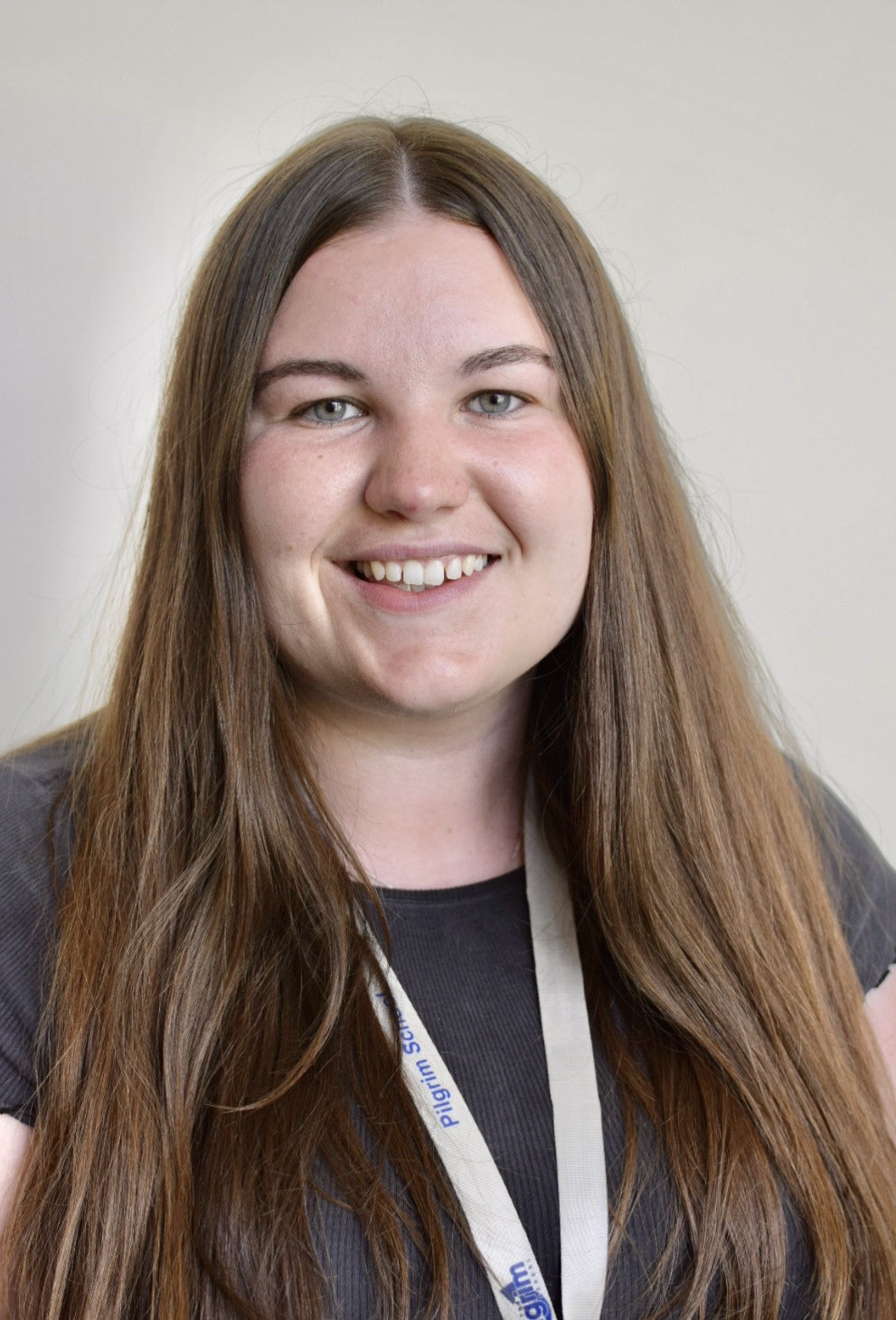SEND/SEN

SENDCo
I would like to introduce myself, tell you a little bit about my role and also how to contact me. My name is Elena Wilson and I am the SENDCo at The Pilgrim School. I have been working at The Pilgrim School since September 2018 and have been the SENDCo since January 2023. Alongside my SENDCo role I also teach Maths and Psychology.
A SENDCo (Special Educational Needs and Disabilities Coordinator) aids the teaching and learning of pupils with special educational needs and/or disabilities within their primary or secondary school. I work alongside your child’s Pastoral Support and Welfare Specialist, Academic Link and Teachers as well as their mainstream school and other outside agencies to support your child and ensure they are receiving the correct support. My role includes ensuring that pupils Educational, Health and Care Plans (EHCPs) are being met, interventions are put in place to provide additional support and that children with unmet special educational needs are identified. In this role I support the pupils and their families within our school community to get the right support, at the right place, at the right time.
Due to the nature of the pupils that attend our school, all pupils are added to our SEN register when start with us. If your child needs anything additional to our normal offer such as an additional intervention, you will be informed of this. However, all of our pupils, when appropriate, take part in a comprehensive reading assessment which provides all the insights needed to guide literacy growth for emergent readers, struggling readers, and high achievers. Dependent on the outcome of this assessment pupils will then be put on different reading pathways, some of which may involve reading intervention or further testing. If your child is recommended for further testing a member of staff will be in touch with you to organise this.
More information about out SEND provision can be found in our SEND information report on our Policies & Key Documents page.
I am always happy to have a conversation if you have any concerns or queries.
You can contact me via:
- Email: elena.wilson@pilgrim.lincs.sch.uk
- Mobile: 07572173737
- Alternatively, you could call one of the bases who will be able to put you in touch with me.
SEND Provision at The Pilgrim School
Every pupil in The Pilgrim School community has complex needs, therefore the structures and provisions presume the need for support and intervention. SEND systems and procedures are not ‘different’ or ‘additional’ to what is already available to every pupil, as the nature of a placement at The Pilgrim School means that education that is different or additional is the modus operandi of the school. Our vision is for every pupil at The Pilgrim School to have individualised provision which meets their needs and accelerates their progress in every area of life. We are a ‘Hope-Led’ school, which means that with the bedrock of caring and empathetic relationships, pupils can learn how to be motivated to have pathways to reach their goals. We do this through focussing on 5 key areas: Mastery of the Curriculum; Hearing a Hopeful Voice; Learning Hopeful Narratives; Assessment for Learning: Effective Feedback; Talking and Thinking ‘Hopefully’
This in turn will enable young people to have improved mental health and wellbeing, improved educational outcomes and to be part of more compassionate communities. Quality First Teaching and Learning is at the heart of everything we do, and a lot of pupil need is met through their experience in the classroom (and at times, outside of it). Every pupil has a Pupil Passport, which details exactly what does and doesn’t work for a pupil, and how to best help them to make maximum progress.
Everything at The Pilgrim School is a balance, as improved educational outcomes are crucial, but not at the expense of improved mental-health and well-being. We aim to work on both of these things in tandem, and sometimes the balance tips one way or another. What is absolutely essential, therefore, is that we retain this focus on individual need and provision to meet pupil need and ensure their progress in every area of life is accelerated.
Alongside this, we recognise that some pupils also need very specific provision and interventions. We aim to prevent lack of progress where possible, and we do this through a robust referral process which aims to assess pupil need on entry to the school, creating an individualised provision for the pupil from the very beginning. There is no time to ‘waste’ in meeting pupil need, especially as a lot of the pupils who come to The Pilgrim school have missed a lot of time in education. Some pupils come to us with their SEND needs being met and some pupils come to us with unmet (often unidentified) SEND.
We work according to the SEND Code of Practice 2015 which states that ‘[a] child of compulsory school age or a young person has a learning difficulty or disability if he or she has a significantly greater difficulty in learning than the majority of others of the same age, or [they have] a disability which prevents or hinders him or her from making use of facilities of a kind generally provided for others of the same age’ (pp.15-16). We work according to the principles of the Code of Practice which are that we must have regard to:
- the views, wishes and feelings of the child or young person, and the child’s parents;
- the importance of the child or young person, and the child’s parents, participating as fully as possible in decisions, and being provided with the information and support necessary to enable participation in those decisions;
- the need to support the child or young person, and the child’s parents, in order to facilitate the development of the child or young person and to help them achieve the best possible educational and other outcomes, preparing them effectively for adulthood.
These principles are designed to support:
- the participation of children, their parents and young people in decision making
- the early identification of children and young people’s needs and early intervention to support them
- greater choice and control for young people and parents over support
- collaboration between education, health and social care services to provide support
- high quality provision to meet the needs of children and young people with SEND
- a focus on inclusive practice and removing barriers to learning
- successful preparation for adulthood, including independent living and employment (SEND Code of Practice, 2015, pp.19-20)

We are part of Lincolnshire’s Local Offer, which includes services and events for children and young people with special educational needs or disabilities (SEND) and their families. Around 7000 pupils in the county have an Education Health and Care Plan (EHCP). The Graduated Approach is used across Lincolnshire, which involves a process of Assess-Plan-Do-Review. We do this on a school-level, but also in collaboration with the Local Authority to ensure that if a pupil’s needs cannot be met through SEND support, then an EHCP can be applied for. For more information, follow this link: https://www.lincolnshire.gov.uk/start-send/identifying-supporting-send/print.
As detailed above, The Pilgrim School, first and foremost, sees provision for pupils as determined by the pupil. We aspire to meet their needs flexibly and responsively, so that they make as much progress as possible, as quickly as possible. Every pupil at The Pilgrim School has had a disrupted and complex educational history, so we work from pupil need to provision and not from provision to pupil need. Further to this, we believe that a ‘strengths-based’ approach is imperative, as we seek to support pupils to use their strengths to create ways in which they can reach their goals. We recognise that the world around us requires us to be ‘neurotypical’, and that this can often lead to pupil needs being seen as ‘deficits’, which in turn creates low self-esteem. To combat this, our first response to challenges faced by pupils is to support them to build on their strengths so that they are motivated to reach their goals.
This is always done with the foundation of supportive and empathetic relationships. Individual pupil provision will be outlined on their ‘Pupil Passport’ and will be monitored using the Assess-Plan-Do-Review cycle. We will take a Graduated Approach to pupil need, looking at how we can adapt Quality First Teaching and then what different/alternative/flexible strategies can be implemented to support the pupil.
Lincolnshire Parent Carer Forum

I would like to share with you some information about Lincolnshire Parent Carer Forum (LPCF). LPCF is an independent registered charity, working with the local authority and health service, improving services for children with SEND. LPCF provides an experienced, supportive ear for parents, to promote their skills, knowledge and resilience.
Free membership gives parents access to:
-
Facebook page for parents only, with information and support
-
regular, evidence based reports of parents views and feedback
-
regular 'Time2Talk' meetings or coffee mornings
-
signposting for parents of children with SEND to services and professionals
-
signposting events for parents and professionals, including week of SEND
-
workshops on specific issues for parents, requested by members
-
wellbeing support and resilience building
-
additional one-off benefits, including Max Cards
More information can be found at: https://www.lincspcf.org.uk/index.php.



